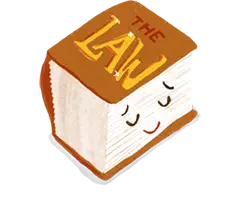Worker rights
This page contains different parts of laws about Worker rights, within the topic of Work and jobs.

Important laws about Worker rights
Court Martial Act 2007
Judges can't have other paid jobs without permission
17: Judges must not hold other offices
Court Martial Act 2007
The Registrar picks fair military members for a Court Martial, considering your rank and job.
24: Registrar must consider other factors in assigning military members
Court Martial Act 2007
Not going to Court Martial without a good reason can get you in trouble
32: Failure to attend Court Martial is contempt of court
Court Martial Act 2007
Senior military member must write a report on command problems
34: Senior military member must submit report on command issues
Court Martial Act 2007
The court can't use info about a military member's behaviour to affect their job.
35: Prohibition on taking into account information about conduct of military members
Court Martial Act 2007
Rules for proof of surrender or arrest for desertion or absence without leave
74: Limits on application of section 71: evidence of surrender, arrest, or delivery to service custody in relation to charge of desertion or absence without leave
Weights and Measures Act 1987
Accredited people are not government employees
30J: Application of certain Acts to accredited persons
Real Estate Agents Act 2008
Salespeople must work under the supervision of a manager or agent.
50: Salespersons must be supervised
Real Estate Agents Act 2008
What kind of job you have with a real estate agent
51: Employment status of salesperson
Real Estate Agents Act 2008
Doing something very wrong as a real estate agent
73: Misconduct
More laws about Worker rights
About this project
What is this project?
How do we do this?
Why is the law written like it is?
Should we use AI for this?
Is this information the actual law?
You can talk to Community Law or Citizen's Advice Bureau about your rights.
Remember that AI can make mistakes, and just reading the law isn't enough to understand how it could be used in court.




